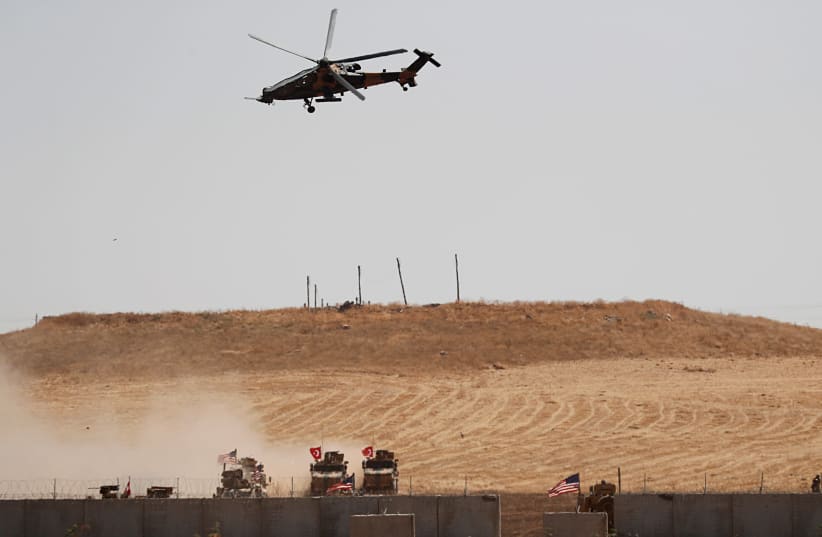Turkey shelled US Special Forces near the city of Kobani in northern Syria on Friday,
Because of their current rules of engagement, the Americans did not respond to the attack and instead fell back. No injuries were reported among the American forces.
The Turkish attack took place as part of “Operation Peace Spring”, which is aimed at Kurdish fighters. These same fighters were backed by the US until a recent decision by US President Donald Trump that troops would be pulled out of Syria.
Trump publicly explained his decision by saying that the Kurds were fighting for their own land and did not help the US in other places and times, offering the example of the Normandy invasion during WW II as one such case.
A Pentagon official told Newsweek that the Turks "should know" where the US positions are.
However, the Turkish official position is that their forces came under attack “1,000 meters southwest” of the US post.
Turkey denied opening fire on US troops and said the attack was on “terrorist positions.”
Trump’s abrupt decision, and his public delivery of it, left many observers wondering what, if any, influence the US will hold in the region after it allows a former ally to be attacked.
In Israel, IDF reservists called on Prime Minister Benjamin Netanyahu to offer military and humanitarian aid to the Kurds in Syria.
Turkey claimed it will eventually create a "safety zone" in Syria to which Syrian refugees, now living in Turkey and Europe, could return and rebuild their lives.
